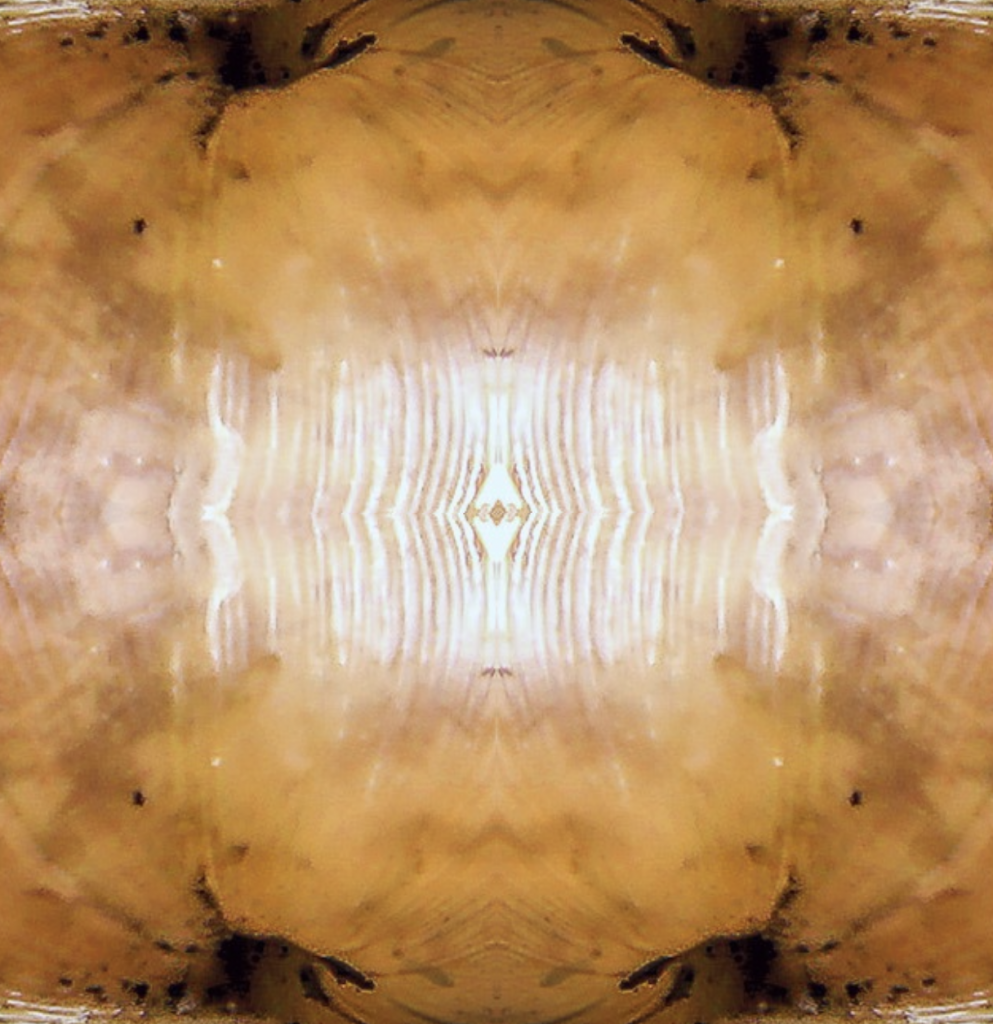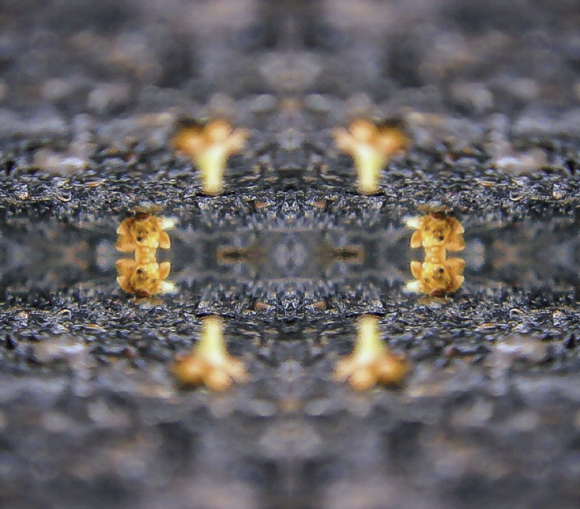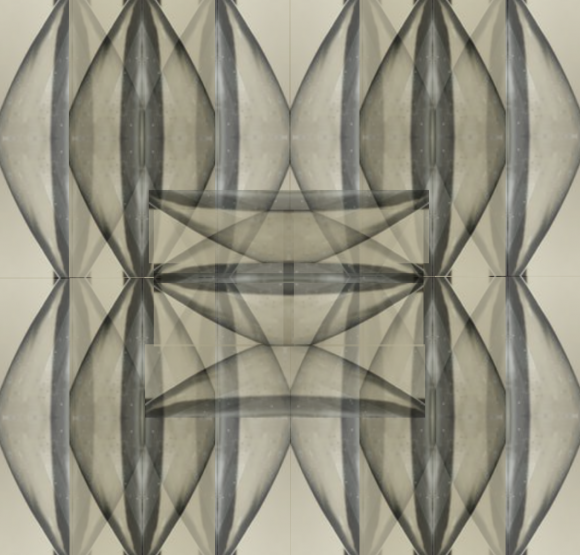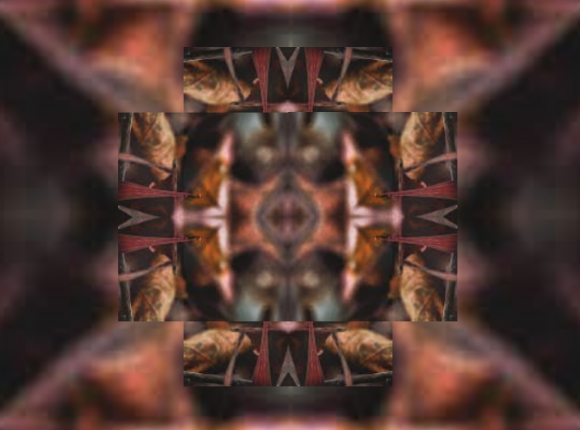In his essay on spirit, Jung not only identifies the archetype of Spirit as that of “a hidden meaning behind the chaotic events of life”, he also claims that this archetype, so understood, was gradually integrated (perhaps even taken over) by human consciousness, and thus had been transformed into a psychological function (never omitting grave warnings of the concomitant risk). We have seen how such an integration of spirit might proceed, psychodynamically, along similar lines to integrating any other archetype’s contents: integrating Spirit, in a sense, proceeds analogously to integrating one’s Shadow, say, or Anima/Animus. But there seems to be an obvious difference, too, for in the case of Spirit, Jung does not actually talk about an individual’s process of integrating archetypal contents as psychological functions: he claims that such a process happened as an overarching development in the history of the human species.

That, of course, is a variation on an origin myth: a phantasy, projected backwards into history, with the purpose to explain or make intelligible how certain current experiences “came about”, thus fishing for some kind of meaning in them. (Origin myths have been criticized as naive and ethnocentric, and with good reason. They usually do not stand up to scrutiny and/or statistically significant evidence. But Jung’s work was done before these developments, and thus origin myths, i.e. talk of “primitive people” or “our ancestors in ancient times”, are part and parcel of his thinking mode and his lines of argument. For the purposes of reconstructing his thought, we need to understand their function in the background of his views.)
1. Jung’s rational reconstruction of the notion of spirit, as he finds it in his culture (GW IX/I, §§385-392), runs along two parallel lines. Each of them traces a certain development or transformation.
The first line takes its departure from the notion itself. In a broad kind of philosophical thinking, “spirit” might be understood as a principle of activity, and as such be in contrast with a passive principle: matter. If “spirit” is the counterpart of “matter”, it may still be seen as a kind of immaterial substance, which as such can be capable of carrying the phenomena of psychology or, more broadly, of life. Somehow, however, the contrast of spirit vs. matter changes into a different one: that of spirit vs. nature. And this change implies a transformation of the notion of “spirit”, which is now restricted to the extra- and super-natural and thus no longer suitable as a basis (albeit immaterial) of psychological or even life phenomena (GW IX/I, § 385).
A little later, Jung re-iterates this thought, and notes that it implies a strange twist in the notion of “nature”:
If spirit is the essentially alive and enlivening, how can nature be found lacking in spirit or even dead?
Indem der Geist das essentiell Belebte und Belebende ist, kann man die Natur doch nicht als ungeistig oder tot empfinden.
GW IX/I, § 385.
And yet, the contrast spirit vs. matter did historically (in Jung’s myth) develop in this direction. What happened?
2. To see that, we have to consider the second line in the historical development of spirit (according to Jung’s backwards-projected myth). This one is not based on any contrast between spirit and something else (as above, where spirit was contrasted to either “matter” or “nature”). Instead, it rests on an internal distinction: spirit can appear either as one’s own, or else as another’s.
The guiding idea is this: whenever an individuum becomes aware of something psychological going on — i.e. whenever an individuum notices their thoughts, emotions, behavioral motivations etc. — they can experience this occurrence as either belonging to themselves (“I’m having this-and-that thought, feeling, …”) or as driving them from the outside (“something takes over and makes me think this-and-that thought, feeling, …”).
Notice that “from the outside” here does not point to something external in the sense of a physical event. Such things, of course, happen all the time, and they also happen “from the outside”. Thus for instance, we may suddenly feel a sharp pain as a result of being stung by a bee, or we may find ourselves thinking “I’m arriving in town.” as a result of seeing houses lining the road on both sides. But these are not the kinds of events “from the outside” relevant here. Rather, we’re talking about psychological phenomena that are internally generated, such as a phantasy image of a person that rises unbidden (e.g. when something triggers our memories), or an emotion that suddenly grabs us (compare GW IX/I, §392a).
When thus something psychological happens in an individuum which they experience as belonging to themselves, this is considered their own spirit. If something happens that rather appears as alien, then it is another spirit, perhaps causing a possession. Spirit in the former case corresponds to a subjective attitude, in the latter case to public opinion, the Zeitgeist, or to that original, not yet human, anthropoid disposition, which is also called the unconscious.
Wenn daher im Individuum sich etwas Psychisches ereignet, das es als zu ihm selbst gehörig empfindet, so ist das sein eigener Geist. Geschieht ihm aber etwas Psychisches, das ihm fremdartig erscheint, so ist das ein anderer Geist, der vielleicht eine Besessenheit veranlaßt. Der Geist im ersteren Falle entspricht der subjektiven Einstellung, im letzten der öffentlichen Meinung, dem Zeitgeist oder der ursprünglichen, noch nicht menschlichen, anthropoiden Disposition, die man auch als das Unbewußte bezeichnet.
GW IX/I, §388.
3. In itself, this contrast between “my own” psychological events and those “alien” ones that come from the outside is a valid distinction, quite independent of the phantasy of the origin myth. It’s true, Jung thought that in ancient times, “at the dawn of humankind”, people experienced almost the entire spectrum of psychological phenomena as “from the outside”, and that this would account for belief in spirits, ghosts, wood nymphs, and the like; over time, then, the balance changed and many of these phenomena became interiorized as human consciousness developed: people increasingly recognized thoughts, emotions, and the like, as “their own psychology”. But whether we think that such a process actually took place or not (i.e. whether it is an empirically and historically true account or merely a backwards-projected myth), in either case we can make a valid distinction between psychological phenomena a person might “own” (consider to belong to themselves) and those which they don’t own (consider to be happening to them).
4. Now in Jung’s argument, this second line of development explains the transformation we have seen in the first line.
Increasingly, people have understood the psychological phenomena which they took to be their own (i.e. their thoughts, feelings, …) as powerful enough to bring order and even some amount of control to their overall experience of life. What they owned as “their” spirit came to appear superior to what happened naturally:
In this way, a super-spirit has superimposed itself over the original, natural life spirit, and even positioned itself in contradistinction to the latter as something merely natural.
So hat sich ein Übergeist dem ursprünglichen, natürlichen Lebensgeist superponiert und sich zu diesem sogar als zu etwas bloß Natürlichem in Gegensatz gestellt.
GW IX/I, §390.
And thus, of course, we have pieced together the myth of the gradual integration of Spirit into human consciousness.
5. What is the function, in Jung’s views, of this myth?
Partly, I think that he needs it as a backing for his understanding of religion, and particularly Christian religion. Religions have preserved, and even developed, an understanding of spirit as a pre-existent and autonomous form of being; and as such the archetype appears in various forms in their theologies. (Of course, they have also eventally lost their grip on, and and their living connection with it, according to his diagnosis.) Unsurprisingly, spirit would appear throughout Western history in religious guises, and thus Jung would identify it, e.g. in alchemistic literature when it borrows religious imagery or places itself in the metaphysical space of Christian theology.
More importantly, though, he can also use the myth for a distancing move, one by which he puts himself in opposition not only to religious theology, but also secular modernism. And that includes even alchemy as a forerunner of the latter:
Alchemy is the dawn of the scientific age, which has forced nature and its powers, through the daemonium of scientific spirit, into the service of man. […] Those are the true roots, the secular psychic preparations of those factors which move the world today. Technology and science may have conquered the world; but whether soul has benefited from this is another question.
Die Alchemie ist die Morgenröte des naturwissenschaftlichen Zeitalters, welches durch das daemonium des wissenschaftlichen Geistes die Natur und ihre Kräfte in bisher unerhörtem Maße in den Dienst des Menschen gezwungen hat. […] Hier liegen die wahren Wurzeln, die säkularen, seelischen Vorbereitungsprozesse zu jenen Faktoren, die heute in der Welt am Werke sind. Technik und Wissenschaft haben zwar die Welt erobert; aber ob die Seele dadurch gewonnen hat, ist eine andere Frage.
GW XIII, §163 (Jung’s emphasis).
And it is telling that in this quote he emphasizes a distinction between spirit (mostly assigned, in this context of talk about alchemy, to science) and soul. (Back in the essay on spirit, one point of critique against materialistic views is that they assume an identity between psychic functions and physical processes, and thus reduce spirit to an epiphenomenon of the latter; given this, only the notion of “soul” remained as a locus of the original, autonomous being of spirit; compare GW IX/I, §391.)
These passages illustrate a persistent theme in Jung’s work: a search for a philosophical locus where an autonomous, subject-independent form of being can be placed. Such a form of being (variously referred to as the collective unconscious, soul/psyche, a psychoid foundation, or — as in our case — spirit) was the central idea behind Jung’s views, and he saw it at work not only in his own mystical experiences (many of which he relates in his autobiography) but also generally at the source of all psychology: presenting itself in the symptoms and dreams of his analysands, in fairy tales and myths, and so on.
Just as the conceptual distinctions Jung pioneered (e.g. between psychological types), and just as the analogical “amplifications” he attempted for patterns of psychological conflict situations (of which Symbols of Transformation is of course the prototypical work), the origin myth serves as a tool for constructing a philosophical locus for his central idea. Perphaps it is even the most explicit of all his instruments for doing so: after all, “spirit” appears in the myth directly described as autonomous and independent psychic entity. The myth, in a word, allows Jung to simply posit his idea, and then weave a narrative based on it that runs towards his own Zeitgeist diagnosis as its terminus. It suffers, however, from all the weaknesses of its obvious nature as historical speculation; and unsurprisingly, it is not among those lines of Jung’s thought that have, at least until now, stood the test of time particularly well.



